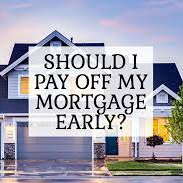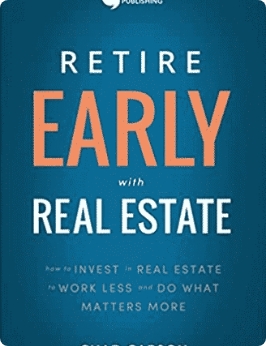Nobody likes having a long-term mortgage debt burden. However, because mortgage rates have been so low for a long time, many borrowers have been content to make their repayments and divert the remainder to other expenses. Furthermore, interest rates are at their highest in 14 years. Now is a good moment to consider whether you should strive to pay off your mortgage sooner. Being debt-free undoubtedly sounds enticing, but you’ll want to empower yourself with as much knowledge as possible for informed decision-making.
Pros of Early Mortgage Repayment
-
Avoid paying interest
A portion of your mortgage payment goes toward interest each month; therefore, the fewer payments you have, the less interest you will pay. You can save tens of thousands of dollars by paying off your mortgage early. Just be careful to tell your lender that any additional payments will only apply to your principal, not interest.
-
No more recurring monthly fees
Your ability to use that income for other purposes increases when you stop making mortgage payments every month. You could, for instance, invest the additional cash or use it to cover your child’s college expenses.
-
Your home is fully yours
You may only be able to afford your monthly mortgage payments if you experience financial difficulty. If you fall behind on payments, your home can be foreclosed on. There is no possibility of losing the house if you fully own it.
Cons of Early Mortgage Repayment
-
Invest in increasing earnings
The typical mortgage interest rate is roughly 3%. Over ten years, the stock market typically returns approximately 9%. Therefore, if you have the option to invest the cash instead of paying off your mortgage early by ten years, you’ll come out ahead.
-
Prepayment penalty on mortgages
Lose the ability to exclude mortgage interest from your tax as a house owner. This allows you to reduce your taxable income by claiming the sum of the mortgage money you spend on your taxes. If you pay off your loan early, you will forfeit this benefit.
-
Effect on your credit score
Your credit score is affected by the kind of credit you have. You might have a mortgage, a vehicle loan, and a credit card. Your credit score will increase if you eliminate those.
Three things to avoid when working on an early mortgage repayment
It’s only sometimes a good idea to pay off your mortgage early. However, you might not always perform things correctly. To avoid making the same blunders as others who have paid off their mortgage early, consider these three significant faults:
1. Not making additional payments towards loan principal
Adding an extra $500 or $1,000 each month won’t speed up the mortgage payoff process. The lender may utilize the additional capital you’re paying to reduce interest for the subsequent scheduled payment unless you specifically state that it should go toward your principal balance. You can mention that you’re making separate payments to cover additional repayments on the memo line. Find out if the lender would allow you to insert a message describing how additional payments should be spent if you pay your mortgage online.
2. Not getting a notice if a prepayment penalty applies
Because they do business to make a profit, mortgage lenders charge interest on your loan as one of their methods of doing so. The lender loses money when you pay back your mortgage. To compensate for their lost revenue, some lenders impose a prepayment penalty. Prepayment fines may be calculated as a percentage of the total amount of the mortgage loan or as a set number of annual interest installments. Those costs can pile up quickly if you pay your mortgage early. For instance, a $7,500 mortgage with a 3% prepayment penalty would cost you $7,500. You can lose cash if you are forced to pay a high penalty in addition to attempting to save some money by repaying your mortgage early.
3. Making yourself debt-free
An aggressive strategy for getting out of debt is to apply every extra dollar to your mortgage. It might also need to be corrected. If you don’t have any money set aside for emergencies, you need to pay your bills with a credit card or try to get a second loan. Your best option might be to put part of your additional mortgage payments into a reserve for rainy days if you lack an emergency reserve. You can concentrate on paying off your mortgage debt when you have 3 to 6 months’ worth of living expenses saved.
Final Words
Ultimately, deciding to pay off the mortgage early depends on how much extra cash you possess, your options, and other individually relevant circumstances. Just make sure you consider all factors and decide accordingly.
Contact Information:
Email: [email protected]
Phone: 6865559012













